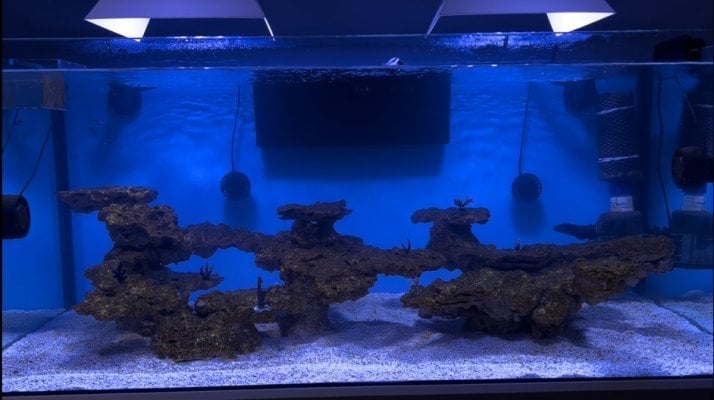Randy Holmes-Farley
Reef Chemist
View Badges
Staff member
Super Moderator
Excellence Award
Expert Contributor
Article Contributor
R2R Research
My Tank Thread
It’s a 80 gallon. I am dosing nothing but Seachem reef Carbonate. No water changes for a month. I don’t dose calcium, magnesium at all. Nitrate levels are consistent at 10. If I don’t dose the 2ML daily alkalinity drops.
Ok, so let’s look closely at what that actually means.
2 mL of that product in 80 gallons boosts alk by 0.07 dKH per day. In a week, that’s 0.49 dKH. In three weeks that is only 1.47 dKH.
If you tank consumed alk and calcium in the ratio that is normal, the calcium will drop less than 0.5 ppm per day or 3.3 ppm calcium in a week (definitely not detectable by kit) or 10 ppm in 3 weeks. That 10 ppm is at the margin of detectability with the best of calcium kits.
Thus, I see no reason to think your tank is not performing exactly as expected.






















